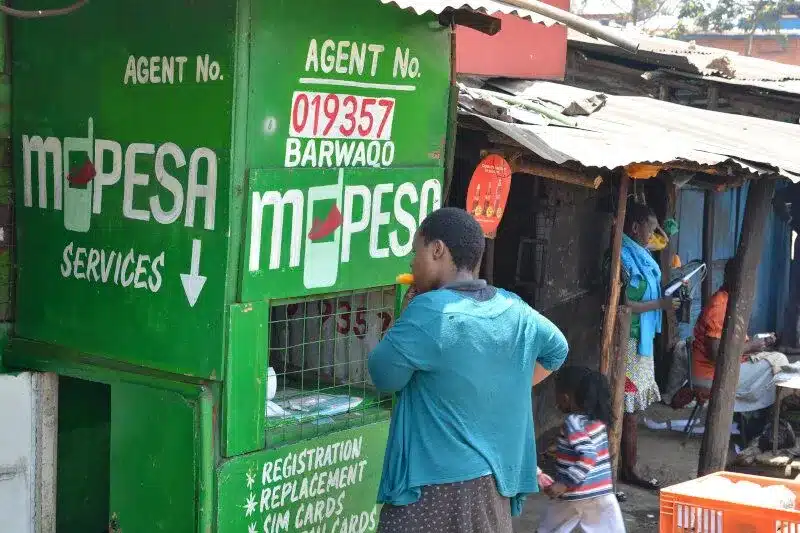Namaste,
Victoria from Techpoint here,
Here’s what I’ve got for you today:
- Your Naira card can now pay for ChatGPT, Netflix, YouTube
- NDPC fines MultiChoice ₦766M over data breach
- SA’s taxman bets on AI to recover $110B in tax
Your Naira card can now pay for ChatGPT, Netflix, YouTube

Nigerian banks are sort of back in the global game. After nearly three years of blocking international transactions on Naira debit cards, some major banks, including Access Bank, FirstBank, GTBank, UBA, and Wema Bank, are finally reopening that door. These Tier-1 banks have all confirmed that customers can now make payments on global platforms using their regular Naira cards.
For everyday users, this is a big deal. It means no more jumping through hoops to pay for Spotify, Netflix, Amazon, or that ChatGPT subscription. The days of relying on virtual dollar cards or begging a friend abroad to help out might be numbered. But there’s a catch: banks are setting spending limits, and not everyone is getting the same deal.
GTBank, for instance, says the new quarterly limit is $1,000. That’s for all international transactions, from online shopping to ATM withdrawals. But some customers, like former presidential aide Bashir Ahmad, say they’ve been offered up to $4,000, per Nairametrics. The bank hasn’t explained why, but it likely depends on acc0unt type or customer history.
UBA is limiting international access to its Premium Naira Cards (Gold, Platinum, World), while Wema Bank has gone all in, hyping its Naira Mastercard as “global-ready” for use on platforms like eBay, AliExpress, and YouTube. It’s clear: banks are being strategic, cautious, and competitive.
This move comes as the Central Bank tries to manage Nigeria’s forex challenges more flexibly. Recall that many banks suspended dollar-linked Naira card usage between 2022 and 2023 due to FX pressure and rising dollar demand, especially during the 2023 election period. Global services lost business. Nigerians were frustrated. Something had to give.
Now that restrictions are easing, customers are excited but cautious. Not all banks have resumed the service yet, and even those that have aren’t fully transparent about who gets what limit. Still, this is a sign that Nigeria’s fintech space is once again opening up to the world, and banks that lag behind may soon find themselves playing catch-up.

Victoria Fakiya – Senior Writer
Techpoint Digest
Stop struggling to find your tech career path
Discover in-demand tech skills and build a standout portfolio in this FREE 5-day email course
NDPC fines MultiChoice ₦766M over data breach

MultiChoice Nigeria has landed in hot water with regulators. The Nigeria Data Protection Commission (NDPC) has fined MultiChoice Nigeria a whopping ₦766 million (~515,000) for violating the country’s data protection laws.
Per a statement released yesterday, Sunday, July 6, the company was found guilty of breaching the Nigeria Data Protection Act by transferring users’ personal data across borders without proper authorisation.
This fine comes on the heels of MultiChoice’s recent price cuts for DStv and GOtv packages, a move seen as an attempt to win back customers amid stiff competition and tough economic conditions. But while customers may be happy with lower bills, the NDPC isn’t smiling. The regulator says its investigation into MultiChoice started in mid-2024 after complaints surfaced about intrusive data practices.
According to the NDPC’s findings, MultiChoice didn’t just mishandle subscriber data, it also accessed and transferred information about people who weren’t even signed up to their services. That, the commission says, is a direct violation of privacy rights protected under Nigeria’s constitution. The level of data collection was described as “intrusive, unfair, unnecessary, and disproportionate.”
The Commission didn’t just slap the fine and move on, it also instructed MultiChoice to fix its data processes. But the company’s response didn’t cut it. “Unsatisfactory,” was how the NDPC described MultiChoice’s actions so far. This lack of compliance helped seal the hefty penalty.
And the warning isn’t just for MultiChoice. NDPC boss Dr Vincent Olatunji made it clear: any platform handling Nigerian data, whether for signups, marketing, or user profiling, needs to comply with the law or risk facing similar penalties. As Nigeria sharpens its focus on digital rights and data security, companies that don’t take data protection seriously might find themselves in the Commission’s crosshairs.
This drama also comes at a time when other tech giants like Meta, TikTok, and Truecaller are under scrutiny from the NDPC. With data breaches making headlines globally, Nigeria’s regulators are drawing a line in the sand.
SA’s taxman bets on AI to recover $110B in tax

The South African Revenue Service (SARS) aims to collect R2 trillion (~$110 billion) in tax revenue through artificial intelligence and a cutting-edge command centre. Per News24, the taxman is pulling out all the stops, from tracking late payments to scanning third-party data, to plug the country’s gaping budget deficit.
At the heart of this effort is a supercharged AI system that doesn’t just monitor taxpayer compliance (which currently sits at 68%), it also helps SARS figure out who’s most likely to pay up. Using smart algorithms, the tax collector filters thousands of tax debt cases to focus on the ones with the highest chances of success.
There’s also a 1,500-strong team of agents chasing down R35 billion (~$1.9 billion) in overdue payments, on top of the R100 billion (~$5.5 billion) already targeted from the R535 billion (~$29.5 billion) South Africans collectively owe.
SARS is now watching revenue collection stats in real time. Its national command centre can see how much is being collected every 15 minutes, filtered by region, type of taxpayer, and case status. They also track queue times at tax branches, how many cases each staff member handles daily, and where network disruptions occur with teams ready to deploy instantly to fix any offline issue.
In April, the taxman exceeded its revenue target by R645 million (~$36 million). But May was a miss, falling short by more than R2 billion (~$110 million). Still, the taxman remains optimistic. With the government approving an extra R7.5 billion (~$414 million) budget boost, partly thanks to pressure from political parties, SARS believes it could rake in between R20 billion (~$1.1 billion) and R50 billion ($2.75 billion) more in this financial year alone. Over the long term, that number could rise to as high as R460 billion (~$25.4 billion) annually if funding keeps coming in.
SARS Commissioner Edward Kieswetter isn’t shy about where the problems came from. He’s said that underinvestment, especially after the state capture era, left the institution lagging behind global standards. At one point, Sars was losing up to R800 billion annually due to outdated systems and inefficiencies. That’s now changing, thanks to a renewed focus on tech, data science, and AI.
As Kieswetter put it, digitalisation isn’t a project, it’s a way of life. And for the tax collector, staying ahead of tax dodgers in a digital world means keeping the systems modern, the data sharp, and the bots smarter than ever.
In case you missed it
- Okra to return three years of runway to investors
What I’m watching and reading
- Are Nigeria’s religious leaders scamming their followers? | The 77 Percent Street Debate
- Do all PASTORS think the same?
Opportunities
- Pitch Friday is on Friday, July 11, 2025. Register here to attend.
- Lagos Business School is hiring. Apply here.
- Kuda is looking to fill 37 positions. Apply here.
- MasterCard is recruiting a Head of Impact Labs. Apply here.
- Jumia is hiring a Chief Marketing Officer (Pipeline). Apply here.
- Sun King is looking for a Workforce Planning Analyst, Nigeria. Apply here.
- Building a startup can feel isolating, but with Equity Merchants CommunityConnect, you can network with fellow founders, experts, and investors, gaining valuable insights and exclusive resources to help you grow your business. Click here to join.
- Help us make Techpoint better for you! Your feedback shapes what comes next (your responses may potentially save my job. A bit dramatic, but still). It will only take 30 seconds to tell us what works and what doesn’t. Fill it here.
- To pitch your startup or product to a live audience, check out this link.
- Have any fresh products you’d like us to start selling? Check out this link here.
- Follow Techpoint Africa’s WhatsApp channel to stay on top of the latest trends and news in the African tech space here.
Have a productive week!
Victoria Fakiya for Techpoint Africa.











